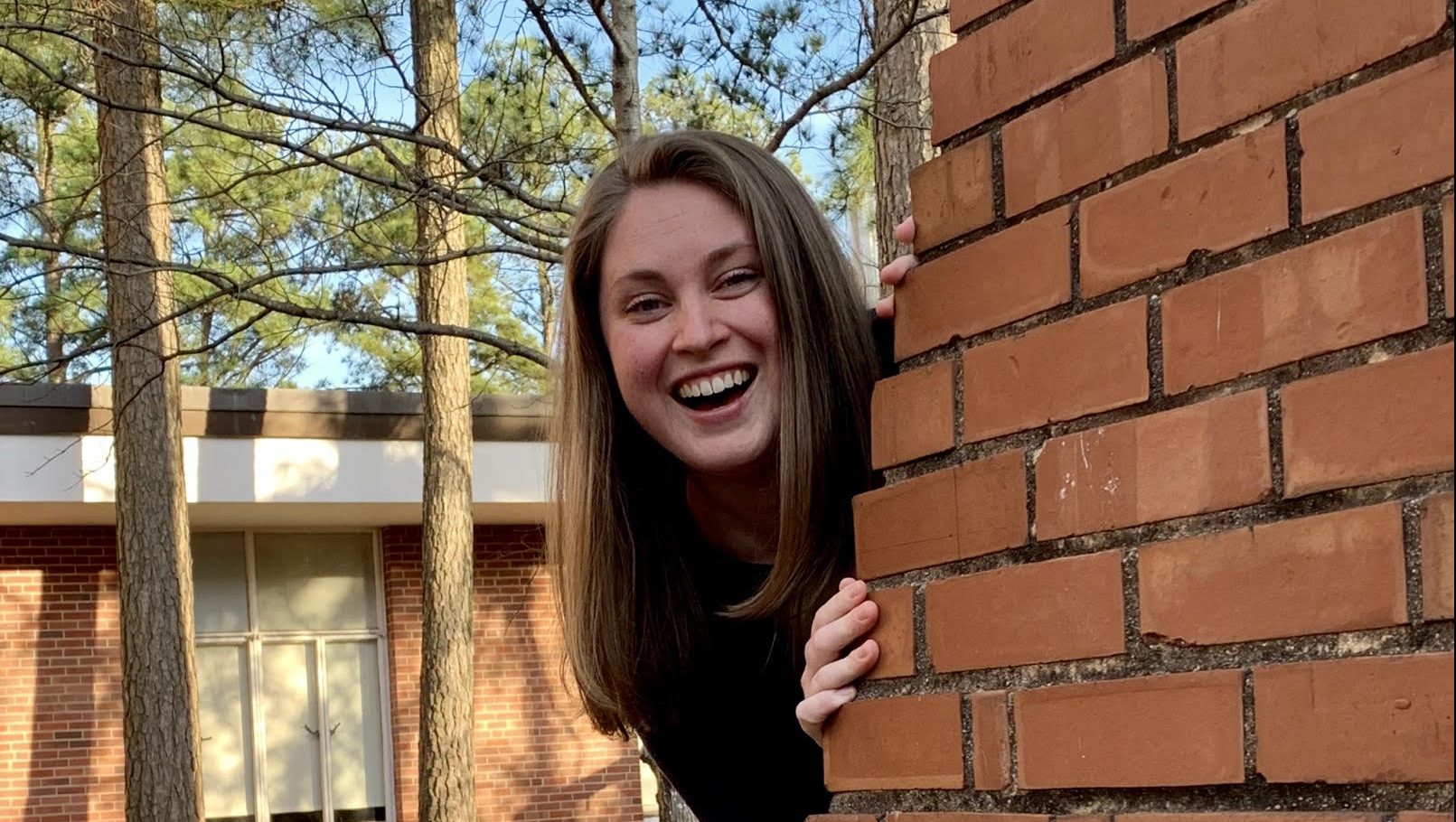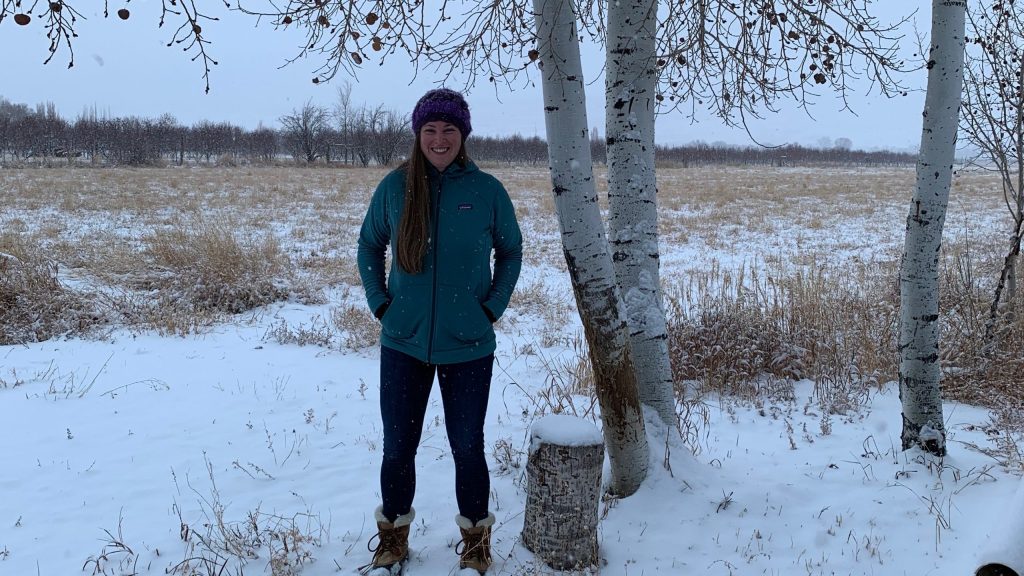Researcher Spotlight – Megan Johnson

2020-21 Global Change Fellow
PhD Student, Department of Civil, Construction, and Environmental Engineering
Advisor: Fernando Garcia Menendez
Every year the Southeast Climate Adaptation Science Center funds a multi-disciplinary cohort of Global Change Fellows representing colleges across NC State University. Here are some highlights about 2020-21 Fellow, Megan Johnson, and the applied research she’s conducting.
About You
What do you study?
I study air quality, specifically how wildland fire (wildfire and prescribed fire) impacts air quality and how this is in turn affects human health. I’ve been looking at things like the uncertainty in how we estimate health impacts from fire smoke, how commonly-used smoke modeling tools compare when they’re used to plan prescribed burns, and how the public perceives wildland fire and smoke.
What (or who) influenced you to go into this field of study?
I grew up in Colorado and I think that gave me a great appreciation for the environment and helped me understand a wide range of issues we face when it comes to protecting it. By the time I was applying for college, I knew that I wanted to study environmental engineering but was still unsure what area I would focus on. I was really fortunate to be able to participate in a summer of research before I started my first semester at CU Boulder and got to work on a project with Dr. Shelly Miller, who studies indoor air quality. The project was really interesting, I loved working with Dr. Miller, and I haven’t really looked back since!
About Your Research

Who will benefit from your research?
I think this is the best part of the research I’m working on — it should be beneficial for a wide range of people. The overarching goal of my research is to minimize public health impacts from smoke while also prioritizing land management practices that benefit the environment and reduce wildfire risk, so there should be overarching benefits for communities that are impacted by fire smoke. But there are other groups that benefit from the smaller pieces of my research. By better understanding the sources and magnitude of uncertainties in how we estimate smoke-related health impacts, scientific communities can better address and reduce these uncertainties. Comparing and evaluating smoke modeling tools that are commonly used by practitioners of prescribed fire will help land managers make informed decisions about the tool they choose for planning burns and managing smoke. By understanding how the public perceives wildland fire and smoke, we can create more effective educational materials that address specific concerns and misconceptions.
How would you describe your research to a 3rd grader?
A couple of years ago at the American Geophysical Union Fall Meeting, I participated in The Up-Goer Five Challenge where you are tasked with explaining your research using only the 1000 most common words in the English language. This might not be exactly the way I’d explain my work to a 3rd grader but it’s close! Here’s part of my explanation from that conference: “Smoke from crazy fires, or fires that are not planned, makes the air not clean. Smoke can make people sick – especially those that are young, old, or already sick — or even cause them to die early. However, it can be hard to try to put a number on how much crazy fires make the air not clean and how that air can change people’s well-being. There are many different ways to guess those numbers and each way doesn’t always give you the same answer. We tried to figure out how different these answers are by studying a group of crazy fires that happened over several months in 2016 in the lower right corner of the US.”
About Your Global Change Fellows Experience
How do you expect the SE CASC Global Change Fellows Program to impact you and your work?
From a short term perspective, the program is helping me to incorporate climate change into my research in ways that I had not previously. The variety of professional development opportunities the program offers throughout the year will also help me hone skills and expand my understanding of how I can approach scientific questions. I think one of the most impactful aspects of the program, though, is just being part of a community of scientists doing actionable science. I want my work, now and in the future, to be directly useful and accessible and think being part of this larger group of scientists focusing their work in this way will have a great impact on my career trajectory.
What has been the most rewarding part of being a SE CASC Global Change Fellow?
At this point, I’ve only been a Fellow for a couple of months but I’ve been enjoying planning the seminars we will be hosting this semester. I’m particularly excited about our first seminar which will bring together a federal scientist, a congressional legislative assistant, and a journalist to discuss how climate policy has been impacted by COVID-19.
